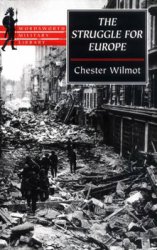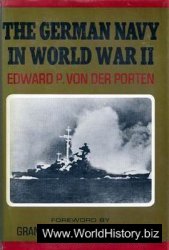Galtieri, Lt Gen Leopoldo
(b. l926). President of Argentina and c-in-c Army in 1982. His decision to invade the Falklands was made in December 1981 to distract public attention from mounting economic chaos and the military junta’s unsavoury record of political repression. He also had political debts to repay, chiefly to Adm Anaya, naval c-in-c and most hawkish of the service chiefs forming the junta. Following the invasion, Galtieri visited the garrison, exhorting them to “fight to the last man” against impending British attack. After the Argentine surrender, Galtieri’s government fell; he was subsequently tried by the new administration of President Alfonsin and sentenced to 12 years’ imprisonment. MH.
Gamelin, Gen Maurice (18721958). Fr. An extremely clever and serious soldier who always seemed destined to reach the top of his profession, but whose career ended disastrously in May 1940. From September 1939 to May 1940 Gamelin commanded all the French services and was also Supreme Commander of the Anglo-French alliance. In the autumn of
1939 he developed and gained approval for a plan for an Allied advance into Belgium in the event of a German attack and a Belgian appeal for help. This plan, though risky, had several points in its favour. But Gamelin added to it a plan to send some of his best mechanized units (Giraud’s Seventh Army) into the Netherlands, which in effect sacrificed his reserve in a hopeless cause.
Between January and early May
1940 Gamelin received intelligence from various sources of a German build-up opposite the Ardennes facing his own two weakest armies, Second and Ninth. Yet he did not reinforce them or modify his plans for advance. Consequently, once the German panzer columns crossed the Meuse on May 13, Gamelin lost control of the battle. When the general direction of the German breakthrough became apparent by May 15, he tried to coordinate an Allied counterattack from the north and south to cut the panzer corridor, but he never attained full control over his own commanders, several of whom panicked and

Gamelin: sacked from command, 1940
Broke down. Reynaud sacked Gamelin on May 18, when he was at last on the point of issuing crucial orders. In the confusion which followed, another 48 hours were wasted, during which the leading German divisions reached the Channel coast. BB.
Gandhi, Mrs Indira (1917-84). The only senior politician to visit the theatre of war with China in 1962. Prime Minister 1966. As crisis mounted in 1971 in East Pakistan (Bangladesh) she urged world statesmen to check Pakistan’s repression. Receiving no response, she gave strong support to Gen Manekshaw in mounting an all-out attack (in contrast to the political indecisiveness shown in 1962 and 1965). The same relentless determination was shown in the order for the attack on the Golden Temple at Amritsar which incurred deep Sikh enmity and led to her assassination. HT.
Gariboldi, Gen. Italian. Acting Commander of Tenth Army in December 1940; Commander of Tri-politania until February 1941 when he replaced Graziani as Italian c-in-c in Lybia, a command which he held only until July 1941.
Garigliano, crossing of the (January 17 1944). X Corps (McCreery) crossed with 5th and 56th Divisions five days before the Anzio landings to pin down German reserves and to start breaching the Gustav Line. They were opposed by 15th Panzer Grenadier and 94th Divisions of XIV Panzer Corps (von Senger). The crossing was successful, but no breach was made in the Gustav Line, which lay in the hills some miles north.
Garros, Capitaine Roland (18881918). Fr. Famous pre-war aviator who, in April 1915, pioneered the use of the machine gun firing forward through the arc of a propeller fitted with deflector plates. After scoring five victories in 18 days, he was taken prisoner. He escaped in 1918 only to die in air combat in October that year.
Gaza, First, Second and Third Battles of (March-November 1917). Having effectively removed the Turkish threat to the Suez Canal, in 1916 the Egyptian Expeditionary Force under Lt Gen Sir Archibald Murray steadily advanced across the Sinai Desert. After a period of consolidation, Murray made plans for a limited spring offensive against Palestine and the capture of the strategically important town of Gaza. Dominating the northern coastal route, Gaza had long been recognized as one of the gateways into Palestine and was heavily defended by Turkish VIII Corps. The British attack launched on March 26 met with initial success. The cavalry of Lt Gen Chetwode’s Desert Column encircled Gaza from the east while Lt Gen Dobell’s infantry divisions of the Eastern Force made a frontal advance. By nightfall British troops had entered the outskirts of Gaza and victory seemed within their grasp but the commanding officers underestimated the strength of their position and ordered withdrawal. British disappointment was compounded by orders from London that the offensive was to be renewed. The commander of the Turkish forces, Col Kress von Kressenstein, used the respite between battles to strengthen Gaza’s defences and increase its garrison. The second British offensive began on April 17 but had none of the subtlety of the first battle. Neither the British use of gas nor a few fairly dilapidated tanks made much impact and, having sustained casualties of 6,500 to the Turks’ 2,000, the attack was called off. Murray was removed and replaced on June 28 1917 by Gen Allenby. Gaza also featured in his plans for a major offensive but Allenby took pains to prepare and strengthen his forces and the attack was not launched until October 31.




 World History
World History









